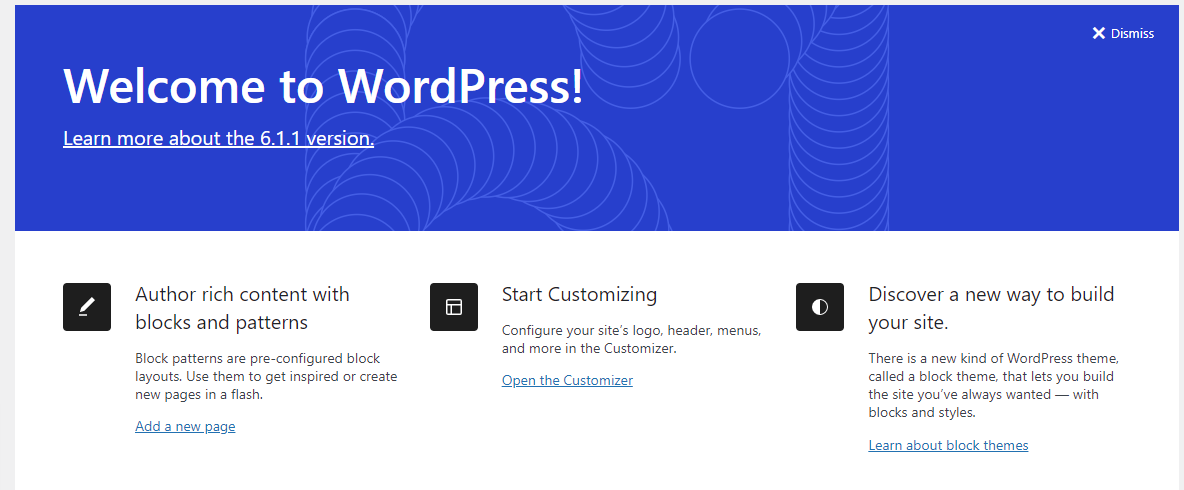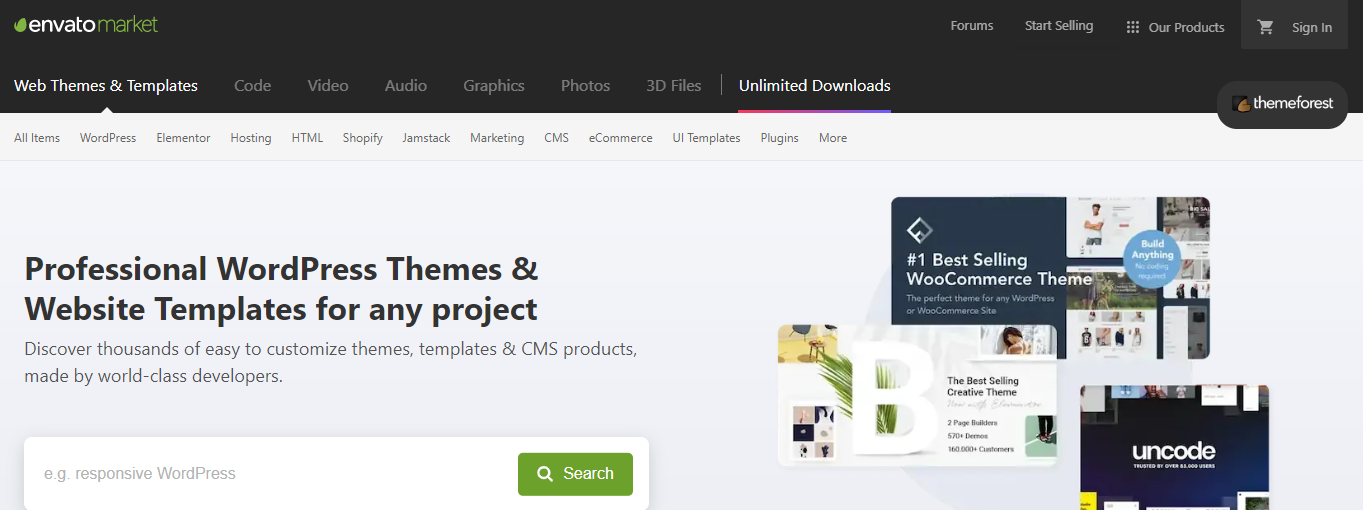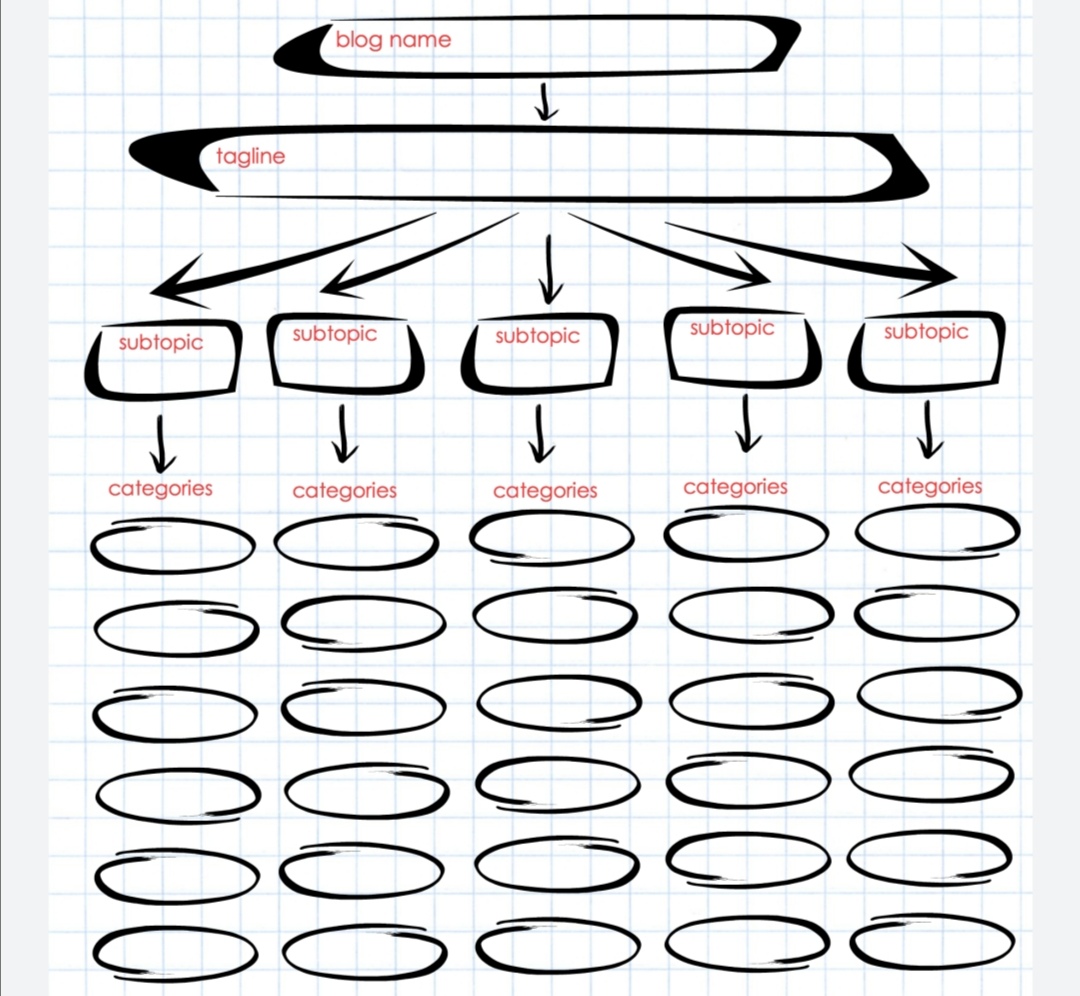
I hope you enjoy reading this blog post.
If you want to learn how to make more money online and increase your sales using digital marketing , click here for free training.
HOW TO START A BLOG IN NIGERIA THAT MAKES MONEY
Do you want to learn how to start a blog in Nigeria and also how to make money blogging? In this article, you're going to learn all what you need to know to run a successful blog in Nigeria.
Blogging can be a rewarding and lucrative career, and it is becoming increasingly popular in Nigeria.
You might like: 10 Best Web Hosting Companies in Nigeria
There are a few steps you will need to follow to start a blog in Nigeria ;

4 Simple Steps to Starting a Blog in Nigeria
Choose your niche
The first step in starting a blog in Nigeria is to decide what you want to write about.
This is known as your "niche." Some popular niches in Nigeria include technology, fashion, food, and music.
Choose a niche that you are passionate about and have knowledge about.
The only limit to your impact is your imagination and commitment." When it comes to choosing your niche for your blog, it's important to let your imagination and commitment guide you.
Your niche is the focus of your blog and the topic you will be writing about.
It's important to choose a niche that you are passionate about and have knowledge about, as this will make it easier for you to create high-quality content and build a strong following.
RECOMMENDED: Best SEO Company in Lagos | Top SEO Agencies in Nigeria
To choose your niche, start by making a list of your interests and areas of expertise. What are you most passionate about? What do you know a lot about?
You can learn how to make money online in Nigeria
Some examples of profitable niches for blogs in Nigeria could include:
- Finance and money management
- Personal development and self-improvement
- Health and wellness
- Food and cooking
- Beauty and fashion
- Technology and gadgets
- Travel and tourism
- Education and careers
- Parenting and family
- Home improvement and DIY
- Pet care
- Entertainment and pop culture
- Sports and fitness
- Gardening and outdoor living
- Art and design
- Photography
- Business and entrepreneurship
- Marketing and advertising
- Environmental issues
- Political commentary and current events
Once you have your list, narrow it down to the top three or four niches that excite you the most. Then, do some research to see which niches are in demand and have the potential to be profitable.

Need More Traffic To Your Blog?
Download our FREE SEO guide that shows you how to grow your traffic and leads
This can include looking at keyword search volume, analyzing the competition, and considering the potential for monetization through advertising, affiliate marketing, and other strategies.
Select a blogging platform
When it comes to starting a blog, one of the first decisions you'll need to make is selecting a blogging platform.
This is the software that will power your blog and provide the framework for your content.
There are many different blogging platforms to choose from, each with their own set of features and benefits. In this article, we'll explore some of the top options to help you select the right platform for your blog.
One popular choice is WordPress. This open-source platform is used by millions of bloggers worldwide and offers a wide range of customization options.

It also has a large community of users and developers, which means you'll have access to a wealth of resources and support.
Another option is Blogger, which is owned by Google and offers a user-friendly interface and easy integration with other Google products.
It's a great choice for beginners and those who want a simple platform with minimal customization options.
Medium is a newer platform that has gained popularity in recent years. It's known for its clean, minimalist design and focus on high-quality content.
It's a good option for bloggers who want to focus on writing and want a platform that is easy to use and looks professional.
When selecting a blogging platform, it's important to consider your needs and goals.
Do you want a platform with a lot of customization options, or are you looking for something more simple and user-friendly?
Do you plan to monetize your blog, and if so, does the platform offer the tools and resources you'll need to do so?
As with any business decision, it's important to do your research and weigh the pros and cons of each platform before making a decision.
Choose a domain name and hosting
When it comes to starting a blog, choosing a domain name and hosting is an important step that requires some thought and effort.
Your domain name is the web address for your blog.
It's the first thing people will see when they visit your site, so it's important to choose a domain name that is memorable, easy to spell, and reflects the content of your blog.
There are many domain name registrars to choose from, and it's important to do your research and select a reputable one.
Some popular options include GoDaddy, Namecheap, and some Nigerian domain name registrar like Domain King.
Once you've chosen your domain name, you'll need to select a hosting provider.
This is the service that stores your blog's content and makes it available to be viewed online.
There are many hosting companies to choose from, and it's important to do your research and select a reliable one.
Some popular options include Bluehost, HostGator, and Dreamhost.
When selecting a hosting provider, it's important to consider factors such as price, storage space, bandwidth, and customer support.
You'll also want to consider the type of hosting that best fits your needs. Options include shared hosting, VPS hosting, and dedicated hosting.
4. Design your blog:
Your blog design is the first thing readers will see when they visit your site, and it's important to make a good impression.
The first step in designing your blog is selecting a theme.
A theme is a pre-designed layout that determines the overall look and feel of your blog.
There are many free and paid themes to choose from, so it's important to do your research and select one that aligns with your brand and aesthetic.
Here are some places to get your Wordpress theme for free and paid;
Free Ones
1. WordPress.org Theme Directory: This is the official directory of WordPress themes, and it includes thousands of free themes that have been reviewed and approved by the WordPress team.

2. Third-party theme repositories: There are many websites that offer collections of free WordPress themes, such as;
Paid Ones
There are several places where you can purchase paid WordPress themes for your blog:
ThemeForest: ThemeForest is a popular marketplace for WordPress themes. It has a wide selection of premium themes at different price points.

Elegant Themes: Elegant Themes is a popular theme provider that offers a variety of paid themes, including their popular Divi theme.

StudioPress: StudioPress is another popular theme provider that offers a variety of paid themes, including their popular Genesis framework.
Creative Market: Creative Market is a marketplace for creative assets, including WordPress themes. You can find a variety of paid themes in their collection.
Here is a blogging structure you can follow;

Next, you'll want to create a logo for your blog.
This is a visual representation of your brand that will appear on your blog and all of your social media accounts.
It's important to create a logo that is unique, memorable, and reflects the focus of your blog.
Once you have your theme and logo, it's time to decide on the layout of your blog.
This includes things like the placement of your logo, the position of your navigation menu, and the color scheme.
It's important to create a layout that is easy to navigate and visually appealing.

Need More Traffic To Your Blog?
Download our FREE SEO guide that shows you how to grow your traffic and leads
Here are a few logo makers that you can use to create a logo for your blog:
1. Canva: This online design platform offers a logo maker tool that allows you to choose from pre-designed templates and customize the design with your own text, colors, and images.
2. Logoshi: This logo maker tool uses artificial intelligence to generate logo designs based on your business name and industry. You can then customize the design with your own preferences.
3. FreeLogoDesign: This website offers a free logo maker tool that allows you to create a logo using a variety of templates and customization options.
4. Logaster: This logo maker tool allows you to generate a logo based on your business name and industry. You can then customize the design with your own preferences and choose from a variety of color and font options.
5. Adobe Spark: This design platform offers a logo maker tool that allows you to create a logo using pre-designed templates and customization options. You can also use Adobe Spark to create other visual content such as social media graphics and presentations.
In addition to these elements, it's important to consider the functionality of your blog.
This includes things like the speed of your site, the ability to search and share content, and the integration of social media.
Designing a blog may seem intimidating, but with a little creativity and attention to detail, you can create a professional and memorable site that reflects your brand and engages your readers.
Adding Content
Creating valuable and engaging content is the foundation of a successful blog. In Nigeria, as in any other part of the world, the key to building a loyal audience is consistently producing high-quality content. Here's how you can get started:
Content Creation Tips:
Identify Your Niche: Choose a specific topic or niche for your blog that resonates with your interests and has an audience in Nigeria. This could be anything from travel, food, fashion, technology, or even a unique combination of interests.
Keyword Research: Utilize tools like Google Keyword Planner to identify popular and relevant keywords related to your niche. This will help your blog rank higher in search results.
Create an Editorial Calendar: Plan your content in advance. This will help you maintain consistency and ensure you cover a variety of topics within your niche.
Write High-Quality Posts: Focus on delivering well-researched and informative articles. Use engaging storytelling and visuals to captivate your readers.
Optimize for SEO: Learn the basics of search engine optimization to improve your blog's visibility on search engines. This includes optimizing meta titles, descriptions, and using headings and subheadings effectively.
Engage Your Audience: Encourage comments, ask questions, and actively engage with your readers through comments and social media.
Diversify Your Content: Experiment with different content formats, such as videos, podcasts, infographics, and case studies, to appeal to a broader audience.
Stay Updated: Keep yourself informed about the latest trends and developments in your niche, and regularly update your content to remain relevant.
Promoting Your Blog
Once you've created compelling content, the next step is to promote your blog effectively to reach a wider audience. Here's how you can promote your blog in Nigeria:
Blog Promotion Strategies:
Social Media Marketing: Leverage popular social media platforms like Facebook, Twitter, Instagram, and LinkedIn to share your blog posts. Engage with your audience and build a community around your blog.
Email Marketing: Build an email list by offering valuable content or incentives to your readers. Send out newsletters with updates, exclusive content, and promotions.
Guest Blogging: Contribute guest posts to other blogs in your niche or industry, including Nigerian blogs. This can help you tap into a new audience and establish authority in your field.
Online Forums and Communities: Join online forums and communities relevant to your niche and participate in discussions. Share your blog posts when they are relevant to the conversation.
Collaborate with Influencers: Partner with Nigerian influencers who have an audience interested in your niche. They can promote your blog to a larger, targeted audience.
SEO Optimization: Continue to optimize your blog for search engines. This will ensure your content ranks well and attracts organic traffic from Google and other search engines.
Paid Advertising: Consider using paid advertising on platforms like Google Ads and Facebook Ads to promote your blog posts. Set a budget and target your ideal audience.
Monetizing Your Blog
Turning your blog into a source of income is a dream for many bloggers. In Nigeria, there are several ways to monetize your blog. Here are some strategies to consider:
Google AdSense: Apply for Google AdSense to display ads on your blog. You'll earn money when visitors click on these ads. Make sure your content adheres to AdSense policies.
Affiliate Marketing: Promote products or services relevant to your niche through affiliate marketing. Earn a commission for each sale generated through your unique affiliate links.
Sell Digital Products: Create and sell digital products, such as eBooks, online courses, or templates, through your blog. This is an excellent way to monetize your expertise.
Sponsored Posts: Partner with brands or companies for sponsored content. Write about their products or services in a way that aligns with your blog's theme.
Membership and Subscriptions: Offer premium content to your loyal readers through a membership or subscription model. Provide exclusive articles, resources, or community access.
Freelance Writing and Consultation: Showcase your expertise through your blog and attract clients who may hire you for freelance writing or consulting services.
E-commerce: If your blog is related to a specific product niche, consider setting up an e-commerce store to sell related products directly to your audience.
By following these tips and strategies, you can start a successful blog in Nigeria, create engaging content, promote it effectively, and eventually monetize it to generate income. Keep in mind that building a blog takes time and consistent effort, so stay committed to your goals.
How Do Bloggers Get Paid in Nigeria

- Advertising: One of the most common ways that bloggers get paid is through advertising. This can include placing banner ads on their blog, or working with brands to promote products or services in their blog posts. Bloggers can earn money through advertising by charging brands a fee for placing ads on their blog, or by earning a commission for every sale that is made through their blog.
- Affiliate marketing: Another way that bloggers get paid is through affiliate marketing. This involves promoting products or services from other companies and earning a commission for every sale that is made through their blog. To participate in affiliate marketing, bloggers need to sign up for an affiliate program, which typically requires them to have a certain amount of traffic on their blog.
- Sponsored content: Some bloggers also get paid by brands to create sponsored content, which is essentially a blog post that is paid for by a brand and promotes their products or services. Sponsored content can be a good way for bloggers to earn money, but it's important to be transparent with your readers and disclose that the content is sponsored.
- Selling products or services: Many bloggers also make money by selling their own products or services through their blog. This can include anything from ebooks and courses to physical products and consulting services.
How Much do I Need to Start a Blog in Nigeria

- Domain name: If you want a custom domain name (e.g., www.myblog.com) instead of a free subdomain (e.g., www.myblog.wordpress.com), you will need to purchase a domain name. Prices for domain names vary depending on the registrar and the extension you choose (e.g., .com, .net, .ng, etc.), but you can typically find a reasonable option for around $10-15 per year.
- Hosting: If you are using a free blogging platform, hosting is usually included as part of the service. However, if you want more control over your blog's hosting and want to use a self-hosted platform like WordPress.org, you will need to pay for hosting. Prices for hosting vary depending on the provider and the package you choose, but you can typically find a basic option for around $5-10 per month.
- Design and customization: If you want to create a unique and professional-looking blog, you may want to invest in a custom design or theme. Prices for custom designs vary depending on the complexity and scope of the project, but you can expect to pay at least a few hundred dollars for a basic design. Some blogging platforms also offer premium themes for purchase, which can range in price from $20-100 or more.
- Additional features and plugins: Depending on your needs and the blogging platform you are using, you may need to purchase additional features or plugins to add functionality to your blog. These can range in price from a few dollars to hundreds of dollars, depending on the complexity and scope of the feature.
Overall, the cost of starting a blog in Nigeria will depend on your specific needs and goals.
If you are just starting out and are looking for a basic, free option, you may only need to invest in a domain name.
If you want a more professional and feature-rich blog, you will need to invest more in hosting, design, and additional features.
Here are few blogging niches others have asked me to talk about;
How to Start a Music Blog in Nigeria

Whether you want to blog about your favorite artists, review new releases, or write about the music industry in Nigeria, there are many free options available for getting started.
Here are some steps you can follow to start your own music blog in Nigeria:
- Choose a blogging platform: There are many free blogging platforms available, such as WordPress.com, Blogger, and Tumblr. Each platform has its own set of features and limitations, so it's important to do some research and choose the one that best meets your needs.
- Select a domain name and hosting: A domain name is the web address for your blog (e.g., www.mymusicblog.com). Many free blogging platforms offer a free subdomain (e.g., www.mymusicblog.wordpress.com), but if you want a more professional-looking and memorable domain name, you will need to purchase one. There are many domain registrars that offer affordable options for registering a domain name in Nigeria. As for hosting, many free blogging platforms offer hosting as part of their service, so you don't need to worry about this step.
- Design your blog: Most blogging platforms offer a range of customizable templates and design options, so you can create a blog that looks professional and reflects your personal style. Some platforms also allow you to upload your own custom designs.
- Start writing and publishing content: Once you have your blog set up, it's time to start creating content. This can be anything from text-based posts about your favorite artists and albums to images, videos, and more. Many blogging platforms have an easy-to-use publishing interface that allows you to create new posts and manage your content.
- Promote your blog: Once you start publishing content, it's important to promote your blog to attract readers. You can do this through social media, by commenting on other music blogs, and by participating in online communities related to music.
How to Start a Fashion Blog in Nigeria

Starting a fashion blog in Nigeria is a great way to share your love of fashion with a wider audience and connect with other fashion enthusiasts.
Whether you want to blog about your personal style, review new collections, or write about the fashion industry in Nigeria, there are many free options available for getting started.
Here are some steps you can follow to start your own fashion blog in Nigeria:
- Choose a blogging platform: There are many free blogging platforms available, such as WordPress.com, Blogger, and Tumblr. Each platform has its own set of features and limitations, so it's important to do some research and choose the one that best meets your needs.
- Select a domain name and hosting: A domain name is the web address for your blog (e.g., www.myfashionblog.com). Many free blogging platforms offer a free subdomain (e.g., www.myfashionblog.wordpress.com), but if you want a more professional-looking and memorable domain name, you will need to purchase one. There are many domain registrars that offer affordable options for registering a domain name in Nigeria. As for hosting, many free blogging platforms offer hosting as part of their service, so you don't need to worry about this step.
- Design your blog: Most blogging platforms offer a range of customizable templates and design options, so you can create a blog that looks professional and reflects your personal style. Some platforms also allow you to upload your own custom designs.
- Start writing and publishing content: Once you have your blog set up, it's time to start creating content. This can be anything from text-based posts about your favorite fashion trends and brands to images, videos, and more. Many blogging platforms have an easy-to-use publishing interface that allows you to create new posts and manage your content.
- Promote your blog: Once you start publishing content, it's important to promote your blog to attract readers. You can do this through social media, by commenting on other fashion blogs, and by participating in online communities related to fashion.
How to Start a Food Blog in Nigeria

Do you love food contents and want to have one so you can share some magical recipes with your readers? Yes, you can actually do that
Whether you want to blog about your favorite recipes, review local restaurants, or write about the food industry in Nigeria, there are many free options available for getting started.
Here are some steps you can follow to start your own food blog in Nigeria:
- Choose a blogging platform: There are many free blogging platforms available, such as WordPress.com, Blogger, and Tumblr. Each platform has its own set of features and limitations, so it's important to do some research and choose the one that best meets your needs.
- Select a domain name and hosting: A domain name is the web address for your blog (e.g., www.myfoodblog.com). Many free blogging platforms offer a free subdomain (e.g., www.myfoodblog.wordpress.com), but if you want a more professional-looking and memorable domain name, you will need to purchase one. There are many domain registrars that offer affordable options for registering a domain name in Nigeria. As for hosting, many free blogging platforms offer hosting as part of their service, so you don't need to worry about this step.
- Design your blog: Most blogging platforms offer a range of customizable templates and design options, so you can create a blog that looks professional and reflects your personal style. Some platforms also allow you to upload your own custom designs.
- Start writing and publishing content: Once you have your blog set up, it's time to start creating content. This can be anything from text-based posts about your favorite recipes and ingredients to images, videos, and more. Many blogging platforms have an easy-to-use publishing interface that allows you to create new posts and manage your content.
- Promote your blog: Once you start publishing content, it's important to promote your blog to attract readers. You can do this through social media, by commenting on other food blogs, and by participating in online communities related to food.
By following these steps, you can easily start your own food blog in Nigeria and share your love of cooking and eating with a wider audience.
Don't forget to take high-quality photos of your dishes to make your blog more visually appealing and engaging for readers.
You can also consider partnering with local restaurants or food brands to offer sponsored content and expand your reach.
Conclusion
To start your own blog in Nigeria, you will need to choose a blogging platform, select a domain name and hosting, design your blog, start writing and publishing content, and promote your blog to attract readers.
By following these steps and putting in the time and effort, you can easily start your own successful blog in Nigeria that makes money.
Frequently Asked Questions
1. How much does it cost to start a blog in Nigeria?
Starting a blog in Nigeria can cost as little as ₦10,000 to ₦100,000 or more, depending on your preferences and goals. Here's a breakdown of potential expenses:
- Domain Name: Approximately ₦5,000 to ₦20,000 per year.
- Web Hosting: ₦10,000 to ₦50,000 per year. You can also use Carrd to build your website
- Website Design: Varies greatly, from ₦0 (if you do it yourself) to ₦50,000 or more for professional help.
- Content Creation Tools: Varies; some tools are free, while others may require a subscription.
- Marketing and Promotion: Your budget for advertising and promotion will depend on your strategy.
2. How do bloggers get paid in Nigeria?
Bloggers in Nigeria can earn income through various methods:
Advertising: Displaying ads on your blog using platforms like Google AdSense.
Affiliate Marketing: Promoting products or services and earning a commission on sales.
Sponsored Content: Partnering with brands to create and publish sponsored posts.
Product Sales: Selling physical or digital products related to your blog's niche.
Freelancing: Offering your writing or content creation skills to other websites.
Consulting and Coaching: Providing expertise in your niche for a fee.
Donations: Accepting donations from your audience through platforms like Patreon.
Online Courses and Ebooks: Creating and selling educational content.
Membership Subscriptions: Offering premium content for paid subscribers.
3. How can I start a free blog in Nigeria?
You can start a free blog in Nigeria by following these steps:
Choose a Blogging Platform: Platforms like WordPress.com, Blogger, and Medium offer free hosting.
Sign Up: Create an account on your chosen platform.
Pick a Domain: Select a subdomain or use a free domain provided by the platform.
Select a Template: Choose a free template or theme for your blog.
Start Creating Content: Write and publish posts relevant to your niche.
Customize Your Blog: Add your own branding, images, and other customizations.
Promote Your Blog: Share your content on social media and engage with your audience.
While starting a free blog is cost-effective, keep in mind that you may have limited control and monetization options compared to a self-hosted blog.
4. How can I start a profitable blog in Nigeria?
To start a profitable blog in Nigeria, follow these steps:
Choose a Profitable Niche: Select a niche with an audience willing to spend money.
Domain and Hosting: Invest in a domain name and reliable web hosting.
Quality Content: Create valuable, original, and engaging content.
Monetization Strategies: Implement multiple income streams, such as ads, affiliate marketing, and sponsored posts.
SEO Optimization: Optimize your content for search engines to attract organic traffic. P.s you can use lasso to build backlinks like https://www.lasso.net/go/link/91XkD3
Social Media Promotion: Build a strong presence on social media platforms to drive traffic.
Email Marketing: Collect email addresses and send newsletters to nurture your audience.
Engage with Your Audience: Respond to comments, emails, and feedback to build a loyal following.
Track Analytics: Monitor your blog's performance using tools like Google Analytics.
Continuous Learning: Stay updated with industry trends and improve your blogging skills.
Remember that building a profitable blog takes time and effort, and it may not yield immediate results. Patience and persistence are key to success in the blogging world.

Need More Traffic To Your Blog?
Download our FREE SEO guide that shows you how to grow your traffic and leads

Article by
Oyejobi Adeola
Oyejobi Adeola is the founder of oyejobiadeola.com, NiveDigital & DigitalMarketingAcademy.ng
